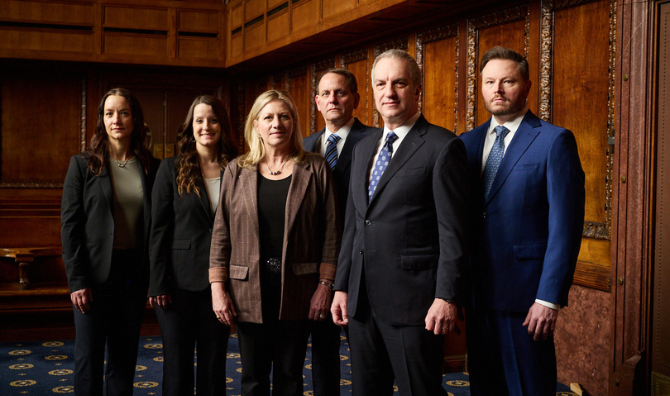Babies who have difficulty breathing immediately after birth may have persistent pulmonary hypertension of the newborn (PPHN). Parents of children who suffered permanent injuries may be entitled to file a PPHN lawsuit.
Newborns with PPHN may have rapid breathing (tachycardia), rapid heart rate, respiratory distress, and cyanosis (blue-tinged skin).
In order to determine the cause of these problems, doctors may employ the following tests:
- Chest X-rays
- Echocardiogram (heart ultrasound)
- Arterial blood gas (to determine the efficiency of oxygen delivery in the blood)
- Blood count
- Spinal tap (to determine if there is an infection)
To discuss your case with a PPHN attorney in Ohio, contact The Becker Law Firm online or by phone at 216-480-4620. We offer free initial consultations.
Anatomy of PPHN
Before birth, the baby’s blood circulation skips the lungs because the oxygen comes from the placenta. The pulmonary artery that normally delivers blood to the lungs instead shunts that blood back to the heart through a fetal blood vessel (ductus arteriosus). When born, the baby’s body usually adapts and that fetal blood vessel permanently closes. Blood is then pumped to the lungs to receive oxygen.
That fetal blood vessel does not close for babies with PPHN, however. The lungs function to the extent that the baby breathes, but the oxygen from the lungs does not reach the bloodstream in sufficient quantities. Lack of oxygen to the brain and other organs causes severe distress to the body.
The statistics on PPHN vary widely, but some studies suggest it affects one out of 700 births. The cause is usually unknown, but it is associated with infection, birth asphyxia, low blood sugar, mother’s use of the antidepressant drug Paxil, pneumonia, and some congenital conditions. It is usually apparent within 12 hours of birth.
Treatment and Complications
The risks to a baby without treatment are severe—shock, heart failure, seizures, kidney damage, brain bleeding, hearing problems, organ damage, and death. Lack of oxygen to the brain can also cause developmental delays and cerebral palsy.
It is estimated that 25% of newborns with PPHN suffer some type of permanent serious neurological injury. The most important thing is to prevent those injuries by supplying the body with enough oxygen, so oxygen is usually given through a tube in the baby’s windpipe.
In some cases, the baby will need assistance breathing through a ventilator. At the same time, the medical team may need to treat other, possibly associated injuries (pneumonia, infection, etc.).
Medical Malpractice Causing Permanent PPHN Injuries
There is nothing that doctors can do to prevent persistent pulmonary hypertension of the newborn. Instead, doctors and nurses have an obligation to carefully watch newborn babies to rule out this serious medical complication. If PPHN is a possibility, they must quickly perform diagnostic tests and instantly initiate treatment to prevent brain injury, organ failure, and death.
If your baby was born with persistent pulmonary hypertension and then suffered a permanent injury, such as hearing loss, developmental delays, cerebral palsy, or seizures, contact our PPHN malpractice lawyers in Ohio for a free consultation. We have the skill and the experience to determine if your health care providers did everything possible to prevent your child’s injuries.
Contact The Becker Law Firm at 216-480-4620 or submit an online contact form to request your complimentary case evaluation.



